We always look forward to the development of new, more demanding, oil specifications. It means the availability of new performance tests – and new ways to test our products – which excites the whole AMSOIL technical development team.
After more than a year of delays, the new API SP and ILSAC GF-6 motor oil specifications took effect May 1. Their introduction continues the trend of more demanding specs to ensure today’s motor oils are capable of protecting advanced engines.
AMSOIL Signature Series Synthetic Motor Oil achieved great results in one of the new engine tests needed to meet API SP and ILSAC GF-6 requirements – the Sequence IIIH Test.
But that’s just part of the story. Let’s peel back the curtain and see how it all happened.
Pushing oil to its breaking point
The Sequence IIIH test is designed to measure viscosity increase and piston cleanliness, two important differentiators of motor oil performance.
It subjects a candidate oil to 90 hours of use at 304ºF (151ºC) in a Chrysler* engine, much hotter than normal operation to really challenge the oil. The intent is to screen oils for their ability to maintain protection under the severe conditions today’s smaller, hotter-running turbocharged engines present.
Simply put, it’s designed to push the oil to its breaking point and separate those that can protect from those that can’t.
Sequence IIIH Test no match for Signature Series
As soon as the test stand was available, we sent samples of Signature Series to an independent lab that specializes in testing motor oils from all kinds of manufacturers.
The lab techs do nothing but test oil all day, every day. They’re accustomed to testing oils designed to just barely pass these performance tests, so when they heard AMSOIL Signature Series was going to be tested, their ears perked up. Many of them are gearheads who use AMSOIL products themselves, so they wanted to see the results.
The 90-hour test didn’t even challenge Signature Series. Its viscosity increased only 0.1 percent and the pistons were so clean they looked practically new.
Double-length Sequence IIIH Test no match, either
So, we told the lab to reassemble the engine and run the test again using the same oil, doubling the length of time on the engine and oil to 180 hours.
As the test neared its conclusion, the lab manager said the techs were lined up in the test cell to watch the engine run…and some were even taking pictures.
Following the test, oil viscosity was measured and the pistons were rated for cleanliness. Even after doubling the length of the industry-standard test, Signature Series limited oil thickening to 49.6 percent – half the allowable limit of 100 percent for a single-length run – while delivering 40 percent cleaner pistons.¹
Needless to say, the techs were impressed.
How did the oil achieve such impressive results?
We start with the best synthetic base oils available, which naturally resist chemical break down in the presence of extreme heat. We add a finely tuned, high-quality additive package designed to complement and enhance the base oils’ performance.
Increased levels of highly active detergent and dispersant additives control contaminants and keep engine parts clean. The premium base oils combined with the right balance of anti-oxidant additives also control viscosity, helping the oil stay in grade despite prolonged exposure to brutal heat.
This adds up to premium engine protection in today’s demanding engines. Signature Series protects vital components against wear in the toughest conditions, providing motorists peace of mind and giving them the confidence to extend drain intervals if they choose.
When a competitor’s oil easily passes an industry-standard test, they often reformulate to reduce cost and performance to where it barely passes the test. When we pass a test (or a double-length test), we continue to search for ways to increase protection even more because, for our customers, “good enough” doesn’t cut it.
Our goal is to provide enthusiasts the absolute best motor oil on the market, and our team gets excited about the testing to prove it. It’s not easy to impress the professionals that test motor oil for a living, but Signature Series delivered.
¹Based on independent testing of AMSOIL Signature Series 5W-30 in the Sequence IIIH Engine Test (ASTM D8111), required by the ILSAC GF-6 and API SP specifications.
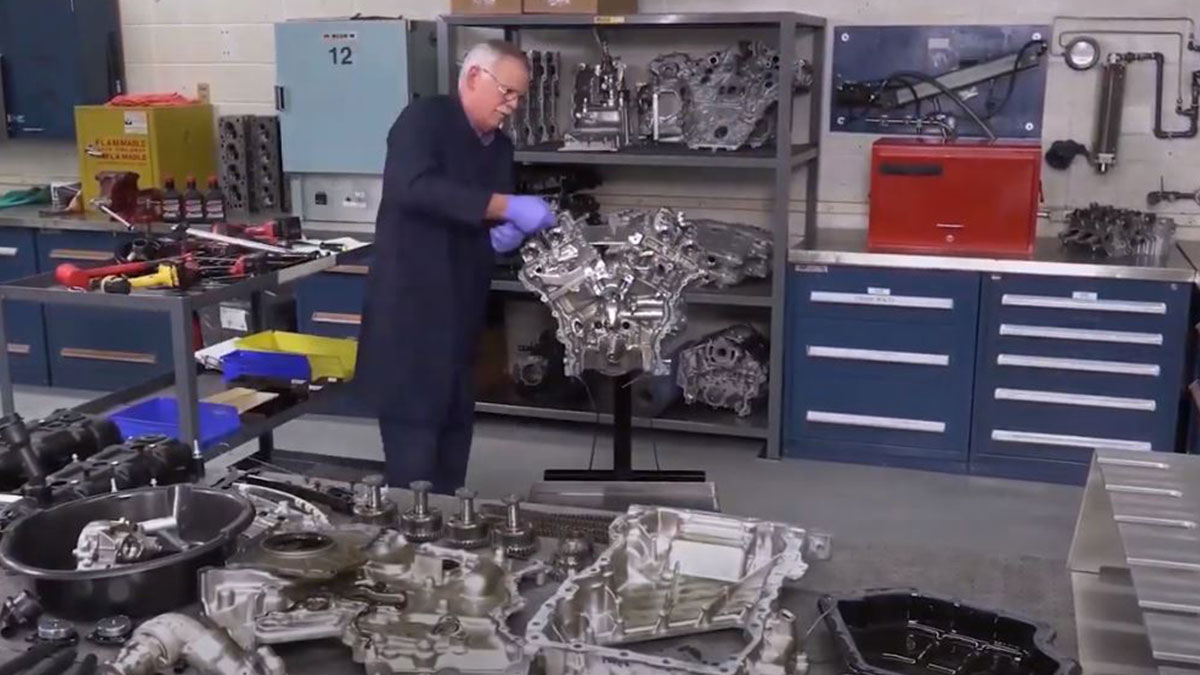


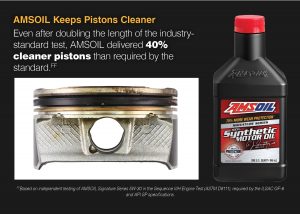

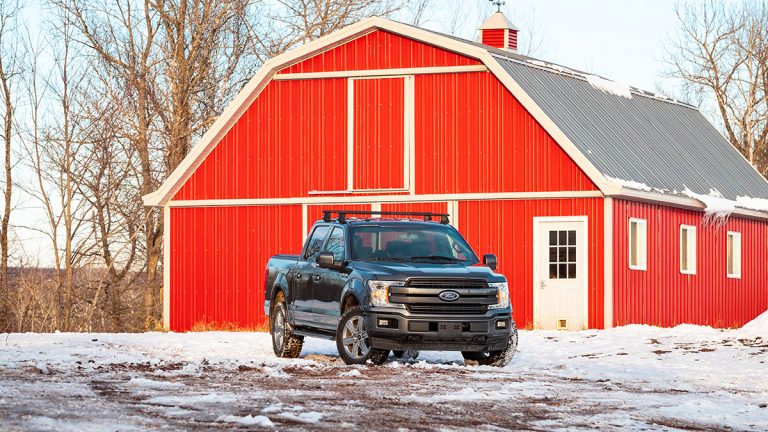
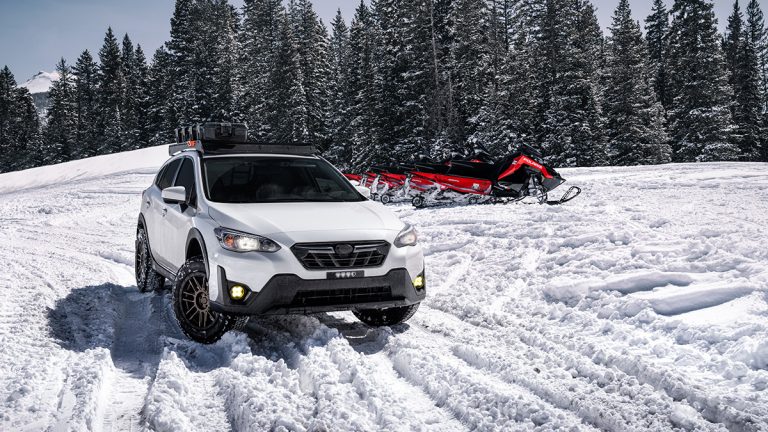
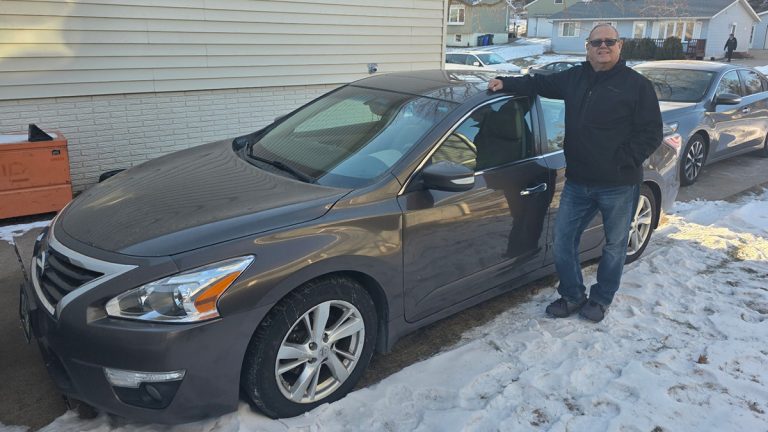
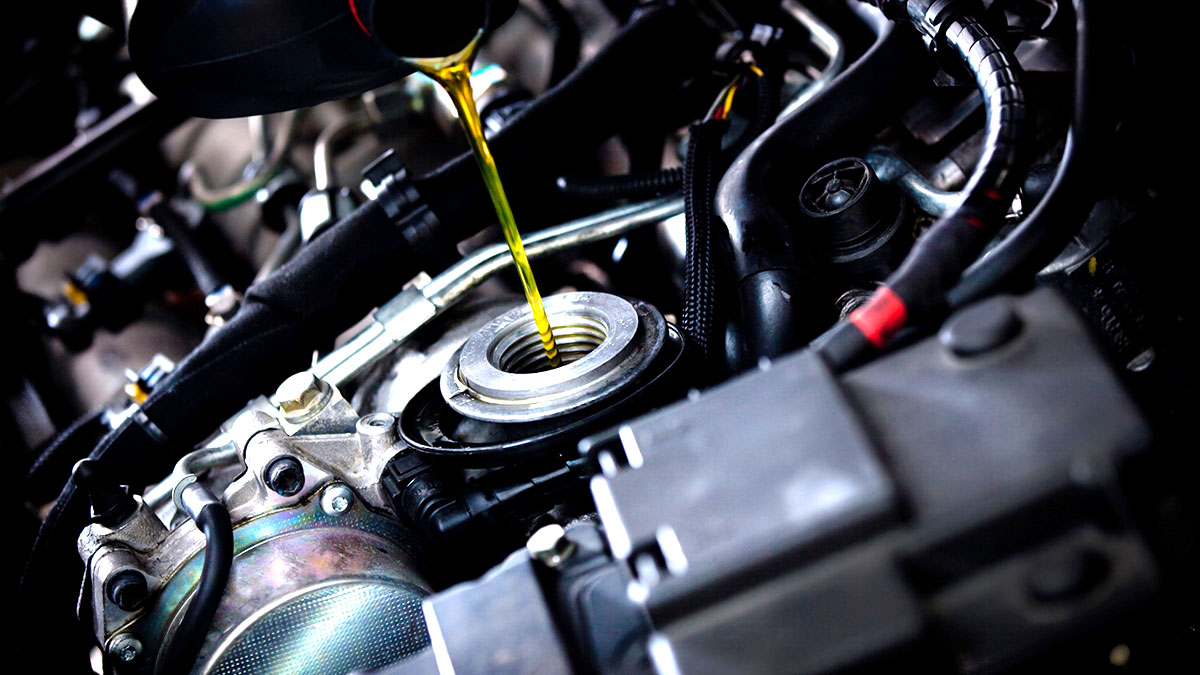
What MORE can you say about the BEST SYNTHETIC MOTOR OIL ON THE U.S.A.MARKET!!! I have seen AMSOIL perform in a race car for over three racing seasons with NO OVERHAUL. AND WAS STILL RUNNING STRONG. This all happened in Fairbanks Alaska in 1982- 83- 84 . And was sold too another driver who ran it half of the next season before losing the coolant and not watching the temp. gauge.
Can you tell me how much does it cost to have oil tested I have a 2012 Dodge Ram with 86000 miles an 3786 hours on it thank you
Hi Vincent,
View Oil Analyzers services and pricing here.
Thanks,
John
Wondering why you decided to use the word “great” when describing how AMSOIL did in the test?
Hi Mike,
How would you describe its performance?
Thanks,
John
“When a competitor’s oil easily passes an industry-standard test, they often reformulate to reduce cost and performance to where it barely passes the test.”
That’s a pretty bold accusation. What proof of that do you have?
Hi MVlo,
First, look at the head-to-head comparisons between AMSOIL products and other lubricants. A good example is cold-temperature performance, which is an expensive feature to include in an oil formulation. This gear-lube test is a good example. The Mobil 1 product failed to meet the industry standard, the Valvoline product snuck in just under the requirement while AMSOIL SEVERE GEAR delivered the best cold-flow performance.
Second, we receive feedback from some of our raw-material suppliers that they love working with us because they can target performance instead of always focusing on reducing costs. Given our performance against other oils and the feedback we get from suppliers, we’re confident that no one is targeting higher levels of performance despite the costs like us.
Thanks,
John
All of the manufacturers make oils that far exceed specifications whether it be Pennzoil Ultra Platinum, Mobil 1 or Castrol Edge. In fact, your own product testing shows this. Pennzoil claims 65% cleaner pistons than industry standard IIIH test. Mobil 1 is in some of the highest performance cars in the world and in 50% of Nascar teams. What you’re referring to are likely the mainstream, mid to low tier synthetic oils.
AMSOIL IS THE BEST IN THE WORLD. MY WIFE AND I HAVE BEEN DEALERS SINCE APRIL 1981. WE WOULD NEVER USE ANY OTHER PRODUCT IN OUR 2016 CHEVY CRUZE…NEVER!!!
I raced a winged mini/lightening sprint car on dirt in the first decade of 2000. Those cars were based on a lightweight midget car type chassis with full suspension. At that time we used 600 liquid twin cyl snowmobile or 750 four cyl motorcycle engines. They were a blast to drive and wicked fast! I got quite a few wins and a couple of points champs with mine.
Usually my modified 600 snowmobile engine would get a freshen a couple times a season running in the summer heat and it always looked really nice inside using the AMSOIL Dominator two cycle racing oil premixed with race fuel.
But one time I ran it for almost two full seasons without touching it and it still was rock solid dependable. When it was finally torn down its condition was astoundingly nice and it could have easily been reassembled with the same parts and ran some more! Heck it was seldom I needed to replace the spark plugs, although I did just to get that fresh spark plug boost.
That was just one of the many times AMSOIL had proven it’s worth to me.
My brand new F150 was using oil and sounding like a diesel just a few months after purchase so i took it back to the dealer and they said the loud metal-to-metal impact noise and oil consumption were “normal” and I had no warranty claim.
The last recall said it would cure the oil-burning problem via reprogramming, but that, too, did nothing.
So I decided to do my next oil change myself with AMSOIL.
My truck is a work truck so it does towing and hauling for a living, so instead of using your typical middle-of-the-road viscosity 5W-30 I decided on the AMSOIL European 5W-30 since it claimed a hot viscosity of about 12cst.
Wow, what a difference!
The engine never sounded so quiet or so smooth!
Even the oil consumption was greatly reduced, so it appears Ford needs to recommend AMSOIL European 5W-30 for ALL their gasoline trucks.
Thank you for saving my $50,000 investment AMSOIL!